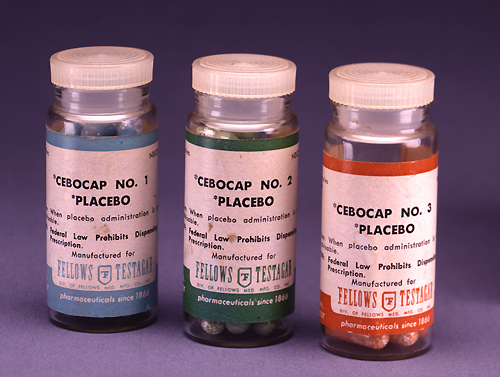Mind Over Medicine: The Placebo Effect - A Sneaky Shortcut to Success or Just a Mind Game
Jasmine Chahal • 2024-05-01
𝙄𝙣𝙨𝙩𝙞𝙩𝙪𝙩𝙚 - 𝙇𝙖𝙙𝙮 𝙀𝙡𝙚𝙖𝙣𝙤𝙧 𝙃𝙤𝙡𝙡𝙚𝙨 In the labyrinth of medicine's mysteries lies a phenomenon both captivating and controversial: the placebo effect. Picture this: you're clutching a lucky charm as you sit down to take an exam, convinced it will ensure top marks.
In the labyrinth of medicine's mysteries lies a phenomenon both captivating and controversial: the placebo effect. Picture this: you're clutching a lucky charm as you sit down to take an exam, convinced it will ensure top marks. But is it truly luck at play, or merely the power of your mind? Such is the remarkable phenomenon known as the placebo effect, a captivating interplay between mind and body that has intrigued scientists and healthcare professionals for centuries. While its therapeutic potential holds promise, the ethical implications surrounding its use in clinical practice pose complex challenges that demand careful consideration and exploration.
Originating from 18th-century experiments [1], the placebo effect sheds light on the intricate connection between psychological factors and physiological responses in healing. It illuminates the profound influence of belief and expectation on health outcomes, highlighting the boundless potential of the human mind to shape physical well-being. Whether through inert substances, sham treatments, or even surgical procedures, placebos demonstrate the profound impact of mindset on health outcomes.
The ethical landscape surrounding placebo use in healthcare is fraught with dilemmas, particularly regarding patient autonomy, beneficence, and transparency. Should patients be informed about receiving a placebo treatment, or does deception undermine the fundamental principles of trust and respect in the patient-provider relationship? In the relationship between healthcare providers and recipients, honesty and respect are paramount [2] and to deceive a patient undermines these crucial principles. Balancing the potential therapeutic benefits of placebos with the imperative of informed consent presents a formidable challenge that requires thoughtful reflection and ethical discernment.
Adding complexity to the ethical discourse is the phenomenon of the nocebo effect, where negative expectations can exacerbate adverse outcomes. Recognising and mitigating the risk of nocebo responses underscores the importance of clear and empathetic communication between healthcare providers and patients. Upholding patient well-being requires not only a commitment to transparency but also sensitivity to the psychological nuances that influence treatment outcomes.
Empirical evidence supporting the authenticity of the placebo effect is compelling, with studies demonstrating its efficacy across a wide range of medical conditions. From chronic pain to psychiatric disorders, placebos have been shown to elicit significant responses, underscoring their relevance in clinical practice. Furthermore, recent advancements in placebo research, including neuroimaging studies and genetic investigations, offer new insights into the underlying mechanisms of placebo responses.
From a Utilitarian standpoint, the ethical use of placebos hinges on their potential to maximise benefits for individual patients and society as a whole. While concerns about deception and patient autonomy persist, the promise of improved health outcomes and enhanced well-being cannot be ignored. Striking a balance between ethical principles and therapeutic efficacy requires careful deliberation and a commitment to patient-centered care.
To conclude, the placebo effect challenges us to reconsider our understanding of healing processes and the role of belief in healthcare. While ethical complexities abound, the therapeutic potential of placebos offers valuable insights into the mind-body connection and the holistic nature of healing. By navigating these complexities with integrity, transparency, and compassion, healthcare providers can harness the power of the placebo effect to enhance patient care and promote overall well-being.
[^1]Mestel, Rosie. "Imagination Effect: The History of Placebo Power." Knowable Magazine, 25 October 2017
[^2] Papagiannis, A.
"Talking with the patient: fundamental principles of clinical communication
See More Posts
Copyright © 2021 Govest, Inc. All rights reserved.


